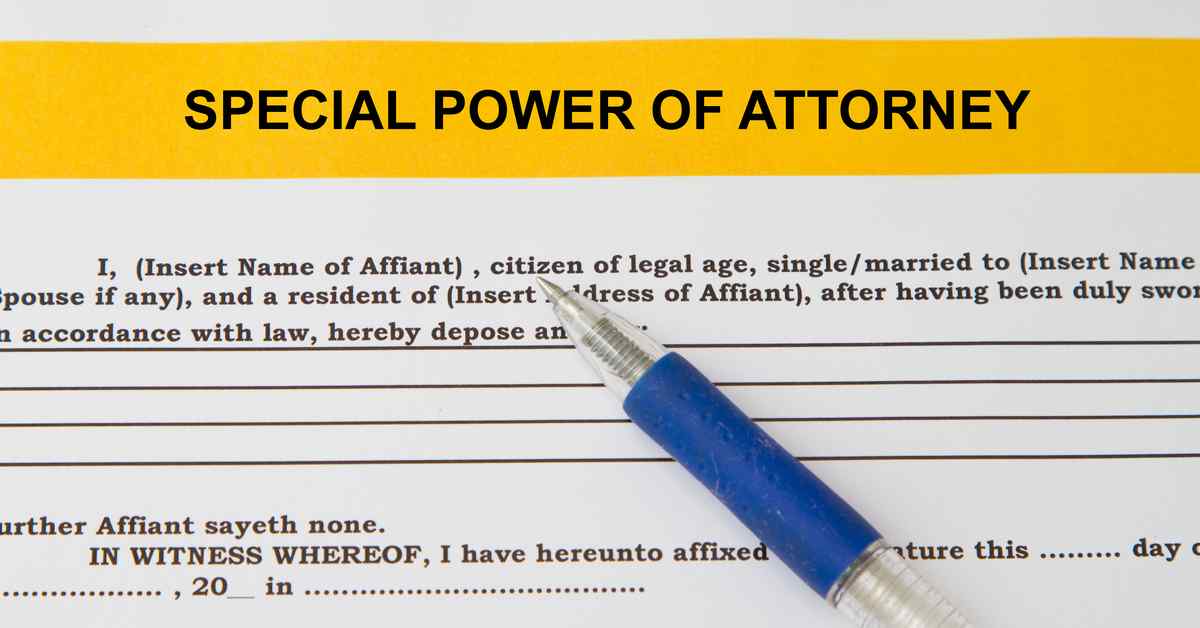Table of Contents
Quality Service Guarantee Or Painting Free

Get a rental agreement with doorstep delivery

Find the BEST deals and get unbelievable DISCOUNTS directly from builders!

5-Star rated painters, premium paints and services at the BEST PRICES!
Loved what you read? Share it with others!


Submit the Form to Unlock the Best Deals Today
Check Your Eligibility Instantly

Experience The NoBrokerHood Difference!
Set up a demo for the entire community
Unlocking the Potential of General Power of Attorney (GPA) in Property Transactions
Table of Contents
The General Power of Attorney (GPA) in property holds a crucial role, empowering individuals to act on behalf of property owners. This legal instrument streamlines property management, purchase and sale transactions, and renting and leasing agreements.
However, the history of GPA in India has been tarnished by misuse, leading to fraudulent practices and legal disputes. To understand the significance of GPA in property transactions and its legal implications, this blog explores its application and the measures taken to address misuse.
GPA full form in property grants authority to individuals to represent property owners in various real estate matters. This authority includes negotiating contracts, signing paperwork, and managing administrative responsibilities. While GPA offers convenience and efficiency, its misuse has raised concerns regarding property rights.
Quality Service Guarantee Or Painting Free

Get a rental agreement with doorstep delivery

Find the BEST deals and get unbelievable DISCOUNTS directly from builders!

5-Star rated painters, premium paints and services at the BEST PRICES!
To combat this, the Indian government has implemented legal reforms emphasizing comprehensive documentation and verification processes. By understanding the application and legal implications of GPA, individuals can ensure transparency, protect property rights, and contribute to the integrity of property transactions.
How Was GPA Earlier Misused in Property Transactions in India?
In the realm of property transactions in India, the General Power of Attorney (GPA) has been marred by historical misuse and controversies. Unscrupulous individuals would obtain GPAs from property owners, allowing them to sell or transfer properties without the owners' knowledge or consent, leading to fraudulent practices and legal disputes.
This misuse further complicated property ownership records, making it difficult to determine the true owners. To address these concerns, the Indian government implemented legal reforms, emphasizing the need for registered deeds instead of relying solely on GPAs.
Courts have also recognized the limited evidentiary value of GPA, promoting the use of clear, registered deeds to establish ownership and consent. Authorities now emphasize comprehensive documentation and verification processes, encouraging property buyers and sellers to engage legal experts and ensure the authenticity of property titles and ownership documents.
These measures aim to enhance transparency, protect property rights, and prevent fraudulent activities in property transactions. By continuing to prioritize transparency and safeguards, India is working towards preserving the integrity of property transactions and safeguarding the rights of property owners.
How Can GPA Be Used in Genuine Property Transactions?
When it comes to GPA in property transactions offers a range of legitimate applications and benefits. Let's delve into how GPA can be used effectively, ensuring compliance with legal requirements and ethical practices:
Property Management and Maintenance
- GPA allows property owners to entrust agents with tasks such as rent collection, repairs, and administrative responsibilities, ensuring seamless property management even in the owner's absence.
Purchase and Sale Transactions
- With GPA, owners can authorise agents to represent them in negotiations, sign contracts, and complete necessary paperwork, streamlining property transactions and ensuring continuity.
Renting and Leasing
- GPA simplifies renting and leasing by enabling property owners to appoint agents to handle tenant-related tasks, such as selection, rent collection, and lease agreement preparation.
To ensure compliance and ethical practices in GPA-based property transactions the government has prescribed some measures. These are:
- Written Authorization: Legally valid written authorization specifying the agent's authority is essential, adhering to jurisdiction-specific requirements.
- Transparency and Accountability: Maintaining transparency and accountability is crucial, with agents acting in the owner's best interest, documenting transactions, and providing regular updates.
- Legal Advice: Seeking legal guidance helps navigate complexities, ensure compliance, and safeguard the interests of all parties involved.
By leveraging GPA in property transactions, owners can delegate responsibilities, streamline processes, and maintain compliance and ethics while benefiting from efficient property management and seamless transactions.
Executing GPA in India
Executing a General Power of Attorney (GPA) involves the formal process of creating a legal document that grants authority to a GPA holder. GPA holder means the agent to whom the authority is granted. Executing GPA authorizes the agent to act on their behalf in various real estate matters.
This requires the signing of a binding agreement that specifies the agent's authority, limitations, duration, purpose, and revocability. The agreement is usually prepared on non-judicial stamp paper and requires signatures from the principal, agent, and witnesses.
By executing a GPA, the agent is empowered to represent the principal in property transactions, including contract negotiations, paperwork signing, and administrative responsibilities. This enables streamlined property management and facilitates smooth property transactions, as the agent can act on behalf of the principal with the granted authority.
To execute a General Power of Attorney (GPA) in India, follow these steps:
Define Authority: Clearly outline the agent's authority and limitations in a legally binding agreement.
Agreement Preparation: Draft the agreement on non-judicial stamp paper, including details like duration, purpose, and revocability.
Signing Process: Sign the agreement in the presence of two witnesses. Ensure the principal's signature is attested by a notary or authorized officer.
Copy Preservation: Make multiple copies of the executed GPA and distribute them among the involved parties for safekeeping.
Optional Registration: Consider registering the GPA at the Sub-Registrar of Assurances for additional benefits and legal validation.
Legal Guidance: Consult a legal professional to ensure compliance with jurisdiction-specific requirements.
By following these steps, individuals can effectively execute a GPA in India, facilitating property transactions while protecting their interests and rights.
To execute a General Power of Attorney (GPA) in India, follow these key steps:
Documentation: Prepare a legally binding agreement on non-judicial stamp paper, specifying the agent's authority, limitations, duration, purpose, and revocability.
Process: Sign the agreement in the presence of two witnesses and ensure the principal's signature is attested by a notary or authorized officer. Pay the applicable stamp duty and distribute copies to all involved parties.
Legal Considerations: Ensure compliance with stamp duty payment, proper execution procedures, and jurisdictional laws. Seek guidance from a legal professional to navigate the process effectively.
By following these steps, individuals can execute a GPA in India, protecting their interests and ensuring its validity.
How to Register GPA Executed in India?
Registering a General Power of Attorney (GPA) is a vital process to ensure its legality and enforceability in India. To register a GPA successfully, you must adhere to specific legal requirements, prepare the necessary documentation, and comply with prescribed timelines.
Legal Requirements
- Stamp Duty: Before registration, pay the applicable stamp duty as per the state's Stamp Act. The stamp duty amount depends on the property's market value or the transaction value.
- Execution: The GPA should be executed on non-judicial stamp paper of the appropriate value, stating the principal's and agent's details clearly.
- Notarization: Get the GPA notarized by a notary public to authenticate the execution and signatures of the parties involved.
Documentation
- Identity Proof: Provide valid identity proofs of the principal and agent, such as an Aadhaar card, passport, or voter ID card.
- Address Proof: Submit address proofs like driving licences, utility bills, or bank statements to verify the residential addresses of both parties.
- Passport Size Photographs: Affix recent passport-size photographs of the principal and the agent to the GPA document.
Timelines
- Preparation of GPA: Draft the GPA with all necessary details or consult a legal professional to assist in drafting the document.
- Stamp Duty Payment: Pay the stamp duty before or at the time of GPA execution, in accordance with state laws.
- Notarization and Registration: After executing the GPA on the stamp paper and notarizing it, register the document within the specified timeframe. Generally, registration should occur within four months from the date of execution.
- Registration Fees: Pay the required fees at the sub-registrar office, where the GPA will be registered. The fees are usually based on the property's value or the transaction amount mentioned in the GPA.
Registering a General Power of Attorney executed in India is crucial for its legal validity. By fulfilling the legal requirements, preparing the necessary documentation, and complying with timelines, you can ensure that the GPA grants the desired powers to the agent. For expert guidance and to ensure compliance with specific laws in your state or jurisdiction, consider consulting a legal professional throughout the registration process.
Executing GPA Outside India (by an NRI/PIO/OCI)
When Non-Resident Indians (NRIs), Persons of Indian Origin (PIOs), and Overseas Citizens of India (OCIs) need to execute a General Power of Attorney (GPA) outside India for property-related matters, there are specific requirements and procedures to follow. Here's a concise guide:
- Local Authentication: Find a local notary or authorized officer in the country of residence for GPA document authentication.
- Indian Consulate Visit: Visit the nearest Indian consulate or embassy to obtain attestation, ensuring the GPA's validity in India.
- Adherence to Local Laws: Understand the legal requirements and regulations governing GPAs in the country of residence.
- Translation: If the GPA is in a foreign language, arrange for translation into English or the official language of India.
- Stamp Duty Consideration: Check if stamp duty payment is required for the GPA in the country of execution.
By fulfilling these requirements and following the necessary procedures, NRIs, PIOs, and OCIs can effectively execute a GPA outside India, facilitating property transactions while safeguarding their interests and ensuring legal compliance.
How to Register GPA Executed Outside India?
When registering a General Power of Attorney (GPA) executed outside India, it is crucial to follow specific procedures to ensure its validity and enforceability within the country. To successfully register a GPA executed outside India, consider the following steps and requirements:
Verification: Begin by verifying the authenticity and validity of the GPA through appropriate legal channels, such as notary public or consular services.
Translation and Notarization: If the GPA is in a language other than English, it needs to be accurately translated into English by a certified translator. Once translated, both the original document and the translated version should be notarized by an authorized official, such as a notary public, in the country where the GPA was executed.
Stamp Duty Payment: Determine the applicable stamp duty for the GPA and ensure the necessary payment is made. Stamp duty amounts vary depending on the state, so consult the local sub-registrar's office or the official government website for specific requirements.
Application Preparation: Compile all the required documents, including the original GPA, translated and notarized copies, proof of stamp duty payment, and identification documents of the grantor and the attorney. Complete the application form provided by the relevant authority or obtained from the sub-registrar's office.
Submission: Submit the completed application along with the supporting documents to the local sub-registrar's office. Make sure all the required information is accurately filled out and signed by the grantor and the attorney.
During the registration process, it is important to address the following legal procedures and considerations:
- Legal Compliance: Adhere to all legal requirements and procedures to ensure the registration process is in compliance with the applicable laws and regulations.
- Documentation: Ensure that all the required documents are complete, properly signed, and notarized. Any missing or incomplete documentation may result in delays or rejection.
- Witness Requirement: Verify whether witnesses are required during the registration process. If so, arrange for witnesses as per the requirements specified by the local sub-registrar's office.
- Timely Registration: Register the GPA promptly after its execution to avoid any potential complications in its enforceability or acceptance by third parties.
By following these steps and considering the legal procedures and requirements, you can successfully register for an executive GPA in property transactions outside India. If you encounter any complexities or uncertainties, it is advisable to seek professional legal guidance to ensure a smooth registration process.
Cancellation of GPA Registered in India:
Cancellation of a registered General Power of Attorney (GPA) in India involves a well-defined process and important considerations to ensure a seamless revocation of powers. Below, we outline the key steps and legal implications associated with the cancellation of a GPA:
Process and Procedures:
- To initiate the cancellation process, a well-drafted Cancellation Deed is prepared, providing essential details such as the parties involved, the date of the original GPA, and the reasons for cancellation.
- The principal signs the Cancellation Deed in the presence of two witnesses, adhering to the formalities prescribed under the Indian Registration Act, of 1908.
- Following the execution, the Cancellation Deed is notarized by a registered notary and filed with the Sub-Registrar of Assurances where the original GPA was registered.
- As a crucial step, the attorney-in-fact is notified about the cancellation after the deed's registration, ensuring clarity and preventing potential misuse.
Legal Implications and Considerations:
- The cancellation effectively revokes the powers granted to the attorney-in-fact, nullifying their authority to act on behalf of the principal.
- To inform third parties who may have interacted with the attorney-in-fact based on the original GPA, it is advisable to publish a notice in a widely circulated newspaper about the cancellation.
- While the cancellation impacts the attorney-in-fact's powers, it's important to note that third parties who acted in good faith before the cancellation may still be protected, unless they had prior knowledge of the revocation.
- Prudent record-keeping of the executed Cancellation Deed, registered acknowledgement, and newspaper publication is highly recommended for future reference and as evidence of the cancellation.
Is purchasing property through GPA a secure option?
Purchasing a property through GPA is not considered a secure option due to certain factors. Firstly, a GPA can be revoked at any time, even if it is initially made irrevocable. Additionally, it automatically lapses upon the death of the grantor. The legal system does not recognize an irrevocable power unless it is coupled with an interest.
These factors raise concerns about the stability and reliability of property transactions conducted through GPA. Such purchases are more likely to lead to unforeseen complications and potential risks. Therefore, it is advisable to exercise caution and consider alternative methods that offer greater security and legal protection in property transactions.
The General Power of Attorney (GPA) in land transactions plays a crucial role, empowering individuals to act on behalf of property owners. With GPA, property management, purchase and sale transactions, and renting and leasing agreements can be streamlined.
However, the historical misuse of GPA in India has led to fraudulent practices and legal disputes, raising concerns about property rights. To address this, the Indian government has implemented legal reforms emphasizing comprehensive documentation and verification processes. By understanding the application and legal implications of GPA, individuals can ensure transparency, protect property rights, and contribute to the integrity of property transactions.
In utilizing GPA for property transactions, individuals must consider key factors. Legally valid written authorization specifying the agent's authority, transparency, and accountability are essential. Seeking legal guidance and adhering to jurisdiction-specific requirements is crucial for compliance and ethical practices.
By following these measures, property owners can delegate responsibilities, streamline processes, and maintain compliance and ethics while benefiting from efficient property management and seamless transactions. The use of GPA, when approached with caution and integrity, empowers individuals to make informed decisions and safeguard their interests in property transactions
How can NoBroker assist you?
NoBroker Legal Service provides valuable assistance with General Power of Attorney (GPA) matters. Their team of experts can review, draft, and tailor GPAs to accurately represent your intentions and expectations. They offer guidance on legal implications, potential risks, and essential clauses to safeguard your interests. With their support, you can ensure that your GPA is well-prepared, legally sound, and protects your rights effectively. Trust NoBroker Legal Service to navigate the complexities of GPA and make your property transactions more secure and transparent.
FAQ's
A1. The validity of a General Power of Attorney (GPA) is determined by its registration at the Sub-Registrar Office (SRO). Additionally, the GPA remains valid for the duration of the principal's lifetime but can be revoked by the owner during that time.
A2. Yes, GPA holders have the authority to gift property on behalf of the property owner. However, it is essential to ensure that the GPA document explicitly grants the power to gift and complies with the legal requirements for property gifting in the jurisdiction. Consulting a legal professional is advisable to navigate the process effectively and ensure compliance with the applicable laws and regulations.
A3. The power of attorney (POA) remains valid only during the lifetime of the principal, and it can be revoked by the principal at any time. There is no specific time limit for a POA as it ceases to be effective upon the death or revocation of the principal.
A4. No, GPA holders cannot write a bill. The General Power of Attorney (GPA) grants the authority to act on behalf of someone else but does not include the ability to create or draft bills. Writing bills typically requires specific legal expertise and authority, which is beyond the scope of a GPA.
A5. The cancellation of a General Power of Attorney (GPA) can typically be done by the grantor of the GPA. As the grantor holds the authority to appoint and revoke the powers granted to the attorney-in-fact, they have the right to initiate the cancellation process. It is advisable to follow the legal procedures and requirements outlined in the applicable jurisdiction to ensure a valid and legally recognized cancellation of the GPA.
Recommended Reading

Special Power of Attorney: Important Insights for 2025
January 31, 2025
11487+ views

Irrevocable Power of Attorney: Legal Guide for Property Owners in 2025
January 31, 2025
706+ views

Legal Documents You Need To Buy And Sell Property: Essential Guide
January 15, 2025
13872+ views

A Complete Guide to GPA for Property - Is it Safe to Buy? GPA for Property Rules in India
January 15, 2025
12502+ views

Power of Attorney: Meaning, Types and Important Clauses
January 15, 2025
6497+ views
Loved what you read? Share it with others!
Most Viewed Articles

Franking Charges Explained: Meaning and Benefits
January 31, 2025
1095140+ views

What is the BBMP E-Khata Registration process for property owners in Bangalore, Karnataka in 2025?
March 3, 2025
126376+ views

Supreme Court Verdict on Society Maintenance Charges
January 31, 2025
92115+ views

All You Need to Know about Revenue Stamps
January 31, 2025
74354+ views

Stamp Duty and Registration Charges in Bangalore in 2025
January 23, 2025
69275+ views
Recent blogs in
What is the BBMP E-Khata Registration process for property owners in Bangalore, Karnataka in 2025?
March 3, 2025 by Suju
Panchkula Property Tax: Payment Methods and Receipt Download 2025
February 12, 2025 by Suju
How to get Non-Encumbrance Certificate Online and Offline: Download and Check Status 2025
February 11, 2025 by Vivek Mishra
e-Aasthi BBMP: Search Property Details, Download Certificates, and Check Status Online
February 5, 2025 by Suju
Simple Introduction to Indian Property Tax
January 31, 2025 by NoBroker.com





Join the conversation!